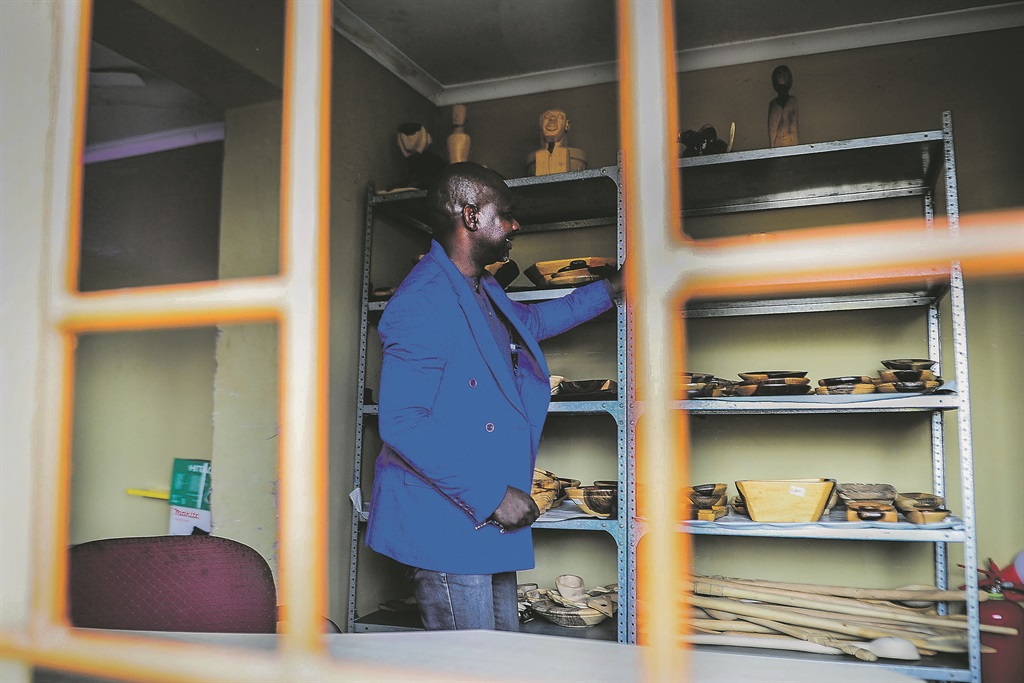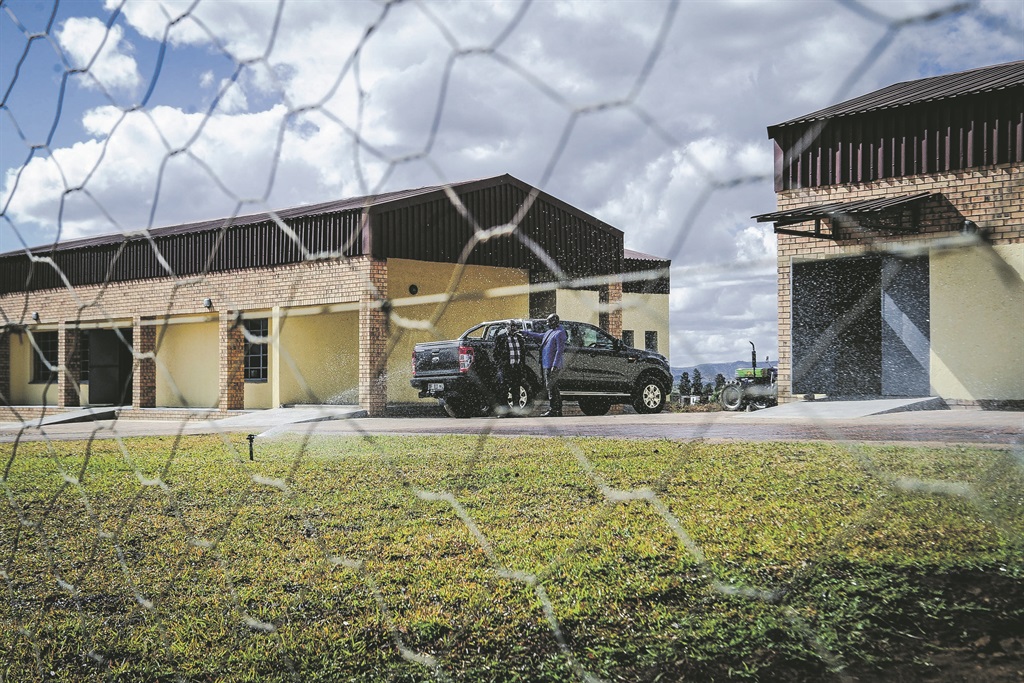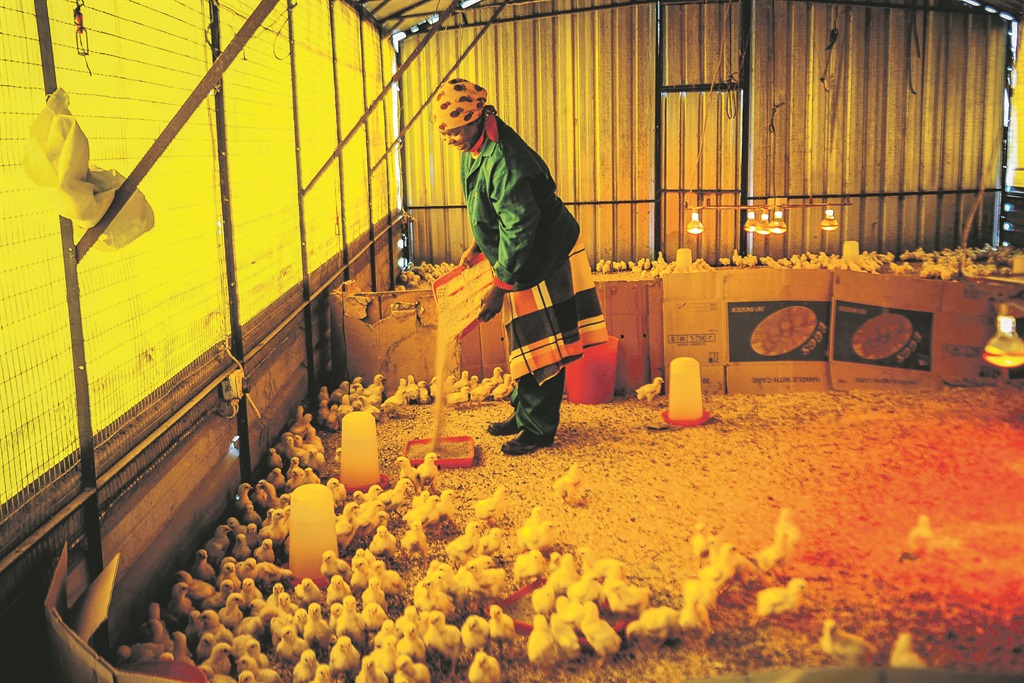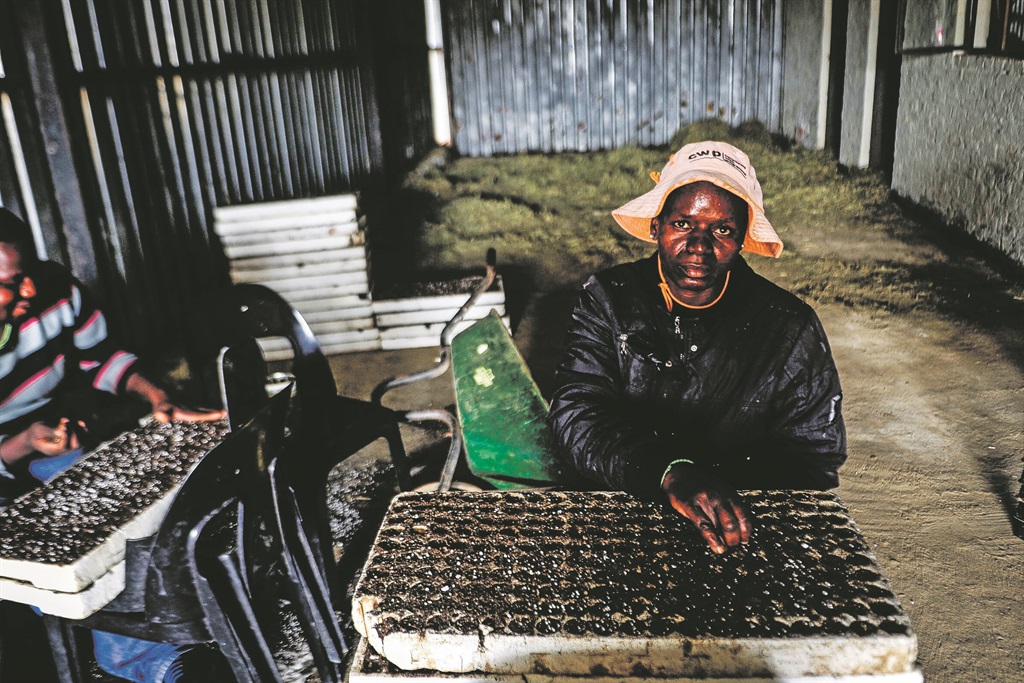A thatched-roof guesthouse overlooks a Limpopo village from atop a small hill which is almost entirely covered by the sprawling building.
The lodge is a symbol of pride for the Matsila community. It leads down to a nameless gravel street that cuts through the village and is flanked by several developmental project sites.
By far the busiest street in the area, along it there are farms for vegetables, chicken, cattle, game and fish; and chicken and red meat abattoirs, as well as an arts-and-crafts centre.
With all this going on, it is clear why a board welcoming you into this dusty street bears the words “The home of development”.
Matsila village, about 28km from the small town of Elim in Limpopo, has a population of about 10 000.
A decade ago it looked like any typical rural area where water is scarce and hopelessness is overwhelming. There was nothing but vast tracts of vacant land interspersed with patchy subsistence farms.
At the time Chief Livhuwani Matsila was a public servant. Matsila, who holds a master’s degree in ecology, held positions of chief of staff in government and later for the ANC in Parliament. He was also a general manager for a unit known as People and Conservation, with SanParks.
It was then that Matsila heeded the call and returned to his home village to take over the traditional leadership role as the chief, following his father’s death in 2004.
“I was not home often before then and I immediately realised people were really suffering and I had to do something about it. With the knowledge and experience I had, I employed it and started mobilising resources with the first financial support coming from Germany, giving the village, which had been experiencing acute water shortage, its first borehole,” he said.
“We mobilised more resources and the wheels of development started rolling in 2007 with small chicken houses and gained momentum in 2009 with a financial injection from the lottery fund leading to more rural development projects.”
Through the newly formed Matsila Community Development Trust, more and more land is being cleared for new infrastructure and, Matsila said, this is not about to stop.
“Our vision is to build an economic hub right here in the village and stand out as such in the local and district municipalities. We’re providing services for the community while we’re at it ... we now have three huge water tanks that enable us to supply water to our people, reducing dependence on the government,” Matsila said.
For the community there is now plenty of opportunity. Matsila said more than 10 000 job opportunities had been created in the past five years. He said 500 community members were employed on a permanent basis and that business opportunities had been created for more than 300 local small businesses.
Matsila said the community projects were not only benefiting the community members, but people from about 10 neighbouring villages that are inhabited by both Tshivenda and Xitsonga-speaking people.
Among them is 46-year-old Constance Rambau from De Hoop village, who described life as “miserable”. Then she got a job with the Matsila Community Development Trust, where she has been a supervisor for almost four years now.
“I am now able to take care of my six dependants, pay for their education and, with the skill I am getting here, I am hoping to start a small business in my own community and also empower and inspire the youth while at it,” Rambau said.
A job opportunity was a “true blessing” for 34-year-old Agreement Maluleke from Majosi village. “Life was tough before this job opportunity presented itself, but now I am enjoying some financial freedom, pay school fees for my siblings and help family wherever I can,” he said.
Maluleke, who works as a supervisor, said he has gained many skills, including health and safety, and he now “understands the importance of our environment and how to handle alien plants”.
Back on the nameless street Matsila gives us a tour – taking us behind the walls into the kraals and greenhouses, as men and women in overalls criss-cross the street.
“We have the Matsila Vegetables Farming Co-operative with 80 members from the community, established with the assistance of the rural development and land reform department. This financial injection will help us to plant vegetables, such as green beans, piquanté peppers and spinach in our arable land totalling 80ha,” he said.
“There is also a total of 60 greenhouse tunnels for farming with high-value commodities such as cucumbers, green peppers and tomatoes. Our production capacity has been improved because of the support from the small business development department through their enterprise incubation programme, which helped a small business entity known as Tshisimani Vegetable Farm.”
Here a group of women are packing boxes of cucumbers while a truck waits outside to ferry them to Gauteng and to other parts of Limpopo.
Opposite is Radzambo chicken farm, which produces 10 000 eggs a day and is extending its chicken value chain significantly.
“We hatch 3 000 chicks a week ... and soon we’ll be able to slaughter 1 000 chickens a day at the recently completed Matsila chicken abattoir ... So our community will then have everything locally produced from an egg to a live chicken or meat over the counter, while creating opportunities for local businesses to buy stock – from eggs to meat – from their own community-owned establishment,” Matsila said.
Next door is another new building that houses a fully equipped abattoir at the back, with the capacity to “slaughter 100 sheep, 100 goats and 50 cows a day”, and a butchery at the front.
Down the road, opposite Chief Matsila’s palace, there is Matsila Game Farm which is home to 10 buffaloes, 15 elands, 20 impalas and 15 nyalas.
Matsila said the buffaloes were “donated by SanParks and Phala Phala Wildlife on behalf of President Cyril Ramaphosa, with each donating five buffaloes”. The total commercial value of the animals, he said, exceeds an estimate of R10 million.
Where the vegetable greenhouse tunnels are based, there is the infrastructure for a fish farm, complete with ponds and pumps. The plan is to start breeding catfish and tilapia there soon.
Meanwhile, dust continues to clog the horizon as more and more infrastructure takes shape in the area.
“We have new projects under construction which include the Matsila Arts and Culture Centre and Matsila Shared Development Centre, which will have a curio shop,” Matsila said.
Back up the road, Joe Matsila Guest House offers a tranquil break from the activity below, with a breathtaking view of the village from the small hilltop. There is a dining spot serving traditional and Western cuisine, as well as a wedding venue; and the lodge provides a child-friendly environment with an extensive lush garden.
His vision, Matsila said, is to use every available space to the community’s benefit.
“Our strategy is to use projects to create more and more jobs rather than having millions piling up and lying unused in the trust’s bank account. Everything so far has been possible through kind financial assistance from the government and private businesses, which made it possible to put our land to good use with the aim of curbing unemployment, creating business opportunities and transferring skills,” he said.
Asked for his opinion on land expropriation without compensation, Matsila said it was a “long overdue process” which, he said, was “unfortunately being implemented at a rush and might not focus on real issues on the ground”.
He said it was important for the land to fall into the hands of people who could put it to good use.
“Thereafter, as we gain more experience and confidence in making land productive, we can also, in a manageable fashion, be allocated more land on a need and merit basis. It can’t just be a programme for all ... the government should not try to make everybody a farmer [unless] we want to see more land becoming less productive and assets vandalised.”
Asked if the busiest street in his village was going to remain nameless, Matsila said he had been “preoccupied with empowering our community more than anything, but I think we must now consider giving it a name”.
| |||||||||||||
| |||||||||||||




 Publications
Publications
 Partners
Partners















